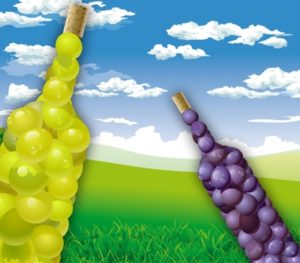 The Philippine Bureau of Customs (BOC) is now requiring importers to obtain clearance from the Office of the Commissioner (OCOM) in order to secure the release of certain imported beverages, spirits, and juices.
The Philippine Bureau of Customs (BOC) is now requiring importers to obtain clearance from the Office of the Commissioner (OCOM) in order to secure the release of certain imported beverages, spirits, and juices.
In a memorandum dated June 6, Customs Commissioner Alberto Lina said that effective immediately, all importations covered by the Harmonized System (HS) Codes 20.09, 22.01, 22.02, 22.03, 22.04, 22.05, 22.06, 22.07, and 22.08, including riders, will first need to get cleared by OCOM to have them released.
HS Code 20.09 covers fruit juices including grape must as well as vegetable juices, unfermented, not containing added spirit, whether or not containing added sugar or other sweetening matter.
HS Codes 22.01 to 22.08 include waters; beer made from malt; wine of fresh grapes, including fortified wines; vermouth and other wine of fresh grapes flavored with plants or aromatic substances; other fermented beverages, mixtures of fermented beverages and mixtures of fermented beverages and non-alcoholic beverages; undenatured ethyl alcohol of an alcoholic strength of 80% volume or higher; ethyl alcohol and other spirits, denatured, of any strength; and undenatured ethyl alcohol of an alcoholic strength of less than 80% volume, spirits, liqueurs and other spirituous beverages.
All tax-exempt shipments as well Philippine Economic Zone Authority and Super Green Lane shipments do not need to secure OCOM clearance.
Lina also enjoined BOC officers to strictly comply with Customs Administrative Order (CAO) No. 08-2007, which provides a description of imported articles in tariff terms, and Customs Memorandum Order (CMO) No. 28-2007, which implements CAO 08-2007 and prescribes the mandatory compliance with the proper description of imported goods.
Documentary requirements such as the single administrative document) with detailed examiner’s findings; commercial invoice; packing list; bill of lading; Food and Drug Administration’s license to operate and certificate of product registration; Authority to Release Imported Goods (ATRIG), if possible; and pictures of the commodity “shall be submitted to ensure expeditious release of the said clearance.”
BOC had earlier also required OCOM clearance for several commodities such as meat in a move meant to ensure compliance with customs laws and curb smuggling. – Roumina Pablo
Image courtesy of Idea go at FreeDigitalPhotos.net





